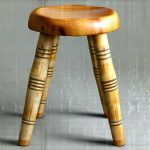Many individuals experience fluctuations in their digestive regularity, often linked to shifts in lifestyle and dietary habits. While occasional changes are usually not cause for concern, a common scenario involves experiencing stool irregularity following a weekend of more indulgent eating – a pattern many can readily relate to. This phenomenon isn’t necessarily indicative of an underlying medical condition; it’s frequently a direct consequence of altered intake, reduced activity levels, and disrupted routines that characterize the typical weekend experience for numerous people. Understanding why this happens, and what steps can be taken to mitigate these effects, is key to maintaining comfortable digestive health.
The human digestive system is remarkably adaptable, but also sensitive to changes. A sudden increase in food volume, particularly foods high in fat, sugar or processed ingredients, throws off the delicate balance that governs bowel movements. Weekend eating often deviates significantly from weekday dietary patterns – larger portions, richer foods, increased snacking, and perhaps even more alcohol consumption are all common. These factors combine to create a scenario where the digestive system is overloaded, leading to temporary irregularity. It’s important to remember that digestion isn’t just about what we eat; it’s also profoundly influenced by how we live – stress levels, sleep quality, and physical activity all play crucial roles. If you suspect blood sugar fluctuations are contributing to your digestive issues, it’s worth investigating further.
The Physiological Impact of Weekend Indulgence
The digestive process is a complex cascade of events, starting with chewing and extending through the intestines. When you drastically change your dietary habits over a weekend, several physiological changes occur that directly impact stool regularity. Firstly, increased fat intake slows down gastric emptying – how quickly food moves from your stomach to your small intestine. This prolonged transit time can contribute to feelings of bloating and discomfort, and also alters the consistency of stool. Secondly, foods high in refined sugars and processed ingredients often lack sufficient fiber. Fiber is crucial for adding bulk to stool and facilitating smooth passage through the digestive tract; its absence leads to harder, more difficult-to-pass stools. Finally, changes in hydration levels—often lower on weekends due to less structured routines—exacerbate constipation by drawing water from the colon, making stool even drier.
Beyond these direct effects on digestion, weekend overeating can also impact gut motility – the rhythmic contractions that move food along the digestive tract. A sudden influx of food stretches the intestinal walls, potentially disrupting these normal contractions. This disruption can lead to either constipation (slowed movement) or diarrhea (accelerated movement), depending on individual physiology and the specific foods consumed. It’s a delicate balance, easily thrown off by significant dietary fluctuations. The key takeaway is that weekend eating habits directly influence both stool consistency and the speed at which waste moves through your system. Understanding acid reflux can also help you understand some of these symptoms.
Furthermore, alcohol consumption – common during weekends for many—can also negatively impact digestive health. Alcohol can irritate the lining of the gastrointestinal tract, interfere with nutrient absorption, and dehydrate the body, all contributing to irregularity. The combination of rich foods, reduced fiber intake, dehydration, and potential alcohol consumption creates a perfect storm for digestive upset. If you experience throat burning after indulging, consider your alcohol consumption as well.
Addressing Constipation After Weekend Overeating
Constipation is perhaps the most common consequence of weekend overindulgence. Here’s how to address it:
- Increase Fluid Intake: This is paramount. Water helps soften stool and facilitates its passage through the colon. Aim for at least eight glasses of water per day, and consider adding electrolyte-rich fluids like coconut water or diluted fruit juice.
- Prioritize Fiber-Rich Foods: Return to a diet rich in fiber as quickly as possible. Good sources include fruits (berries, apples), vegetables (broccoli, spinach), whole grains (oats, brown rice), and legumes (beans, lentils). Gradually increase your fiber intake to avoid bloating.
- Gentle Exercise: Physical activity stimulates intestinal contractions, helping to move stool along the digestive tract. Even a short walk can make a significant difference.
Beyond these immediate steps, consider probiotic-rich foods like yogurt or kefir. Probiotics introduce beneficial bacteria into the gut, which can help restore balance and improve digestion. However, it’s important to note that probiotics aren’t an instant fix; they work best as part of a long-term strategy for digestive health. Remember to listen to your body: forcing bowel movements can be counterproductive and even harmful. Planning weekend recovery meals is a proactive approach to minimize these effects.
Managing Diarrhea Following Overindulgence
While constipation is more common, diarrhea can also result from weekend overeating, particularly if the indulgence involved highly processed foods or excessive amounts of sugar. The underlying cause here isn’t lack of bulk, but rather an accelerated digestive process caused by irritation or osmotic imbalances.
- The BRAT Diet: This classic approach – Bananas, Rice, Applesauce, and Toast – provides bland, easily digestible foods that can help firm up stool.
- Hydration is Critical: Diarrhea leads to significant fluid loss; replenishing fluids is essential to prevent dehydration. Electrolyte solutions are particularly helpful.
- Avoid Irritating Foods: Steer clear of spicy foods, caffeine, alcohol, and dairy products until your digestive system settles down.
It’s crucial to distinguish between temporary diarrhea caused by overeating and persistent diarrhea that may indicate an underlying medical condition. If diarrhea lasts for more than a few days or is accompanied by severe symptoms like fever or blood in the stool, seek medical attention. Understanding lack of stomach acid can sometimes explain digestive issues as well.
Preventing Weekend Digestive Disruptions
The best approach is often preventative. While completely eliminating weekend indulgences isn’t realistic for most people – nor necessarily desirable! – there are steps you can take to minimize their impact on your digestive health:
- Mindful Portion Control: Be conscious of how much you’re eating, even during relaxed settings.
- Prioritize Whole Foods: Even on weekends, aim to incorporate plenty of fruits, vegetables, and whole grains into your meals.
- Stay Hydrated: Don’t forget to drink water throughout the weekend.
- Maintain Some Routine: Try to maintain some level of physical activity – even a leisurely walk can help keep things moving.
- Limit Alcohol Consumption: Moderate alcohol intake is less likely to disrupt digestive function.
Ultimately, a balanced approach that allows for occasional indulgence without completely derailing your healthy habits is the most sustainable way to manage weekend-related stool irregularity. Remember that listening to your body and making adjustments based on your individual needs is key. Be aware of how gut issues may be impacted by dietary choices. Finally, consider the impact of liver problems if you notice consistent digestive issues.


















